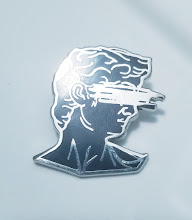The following is an analysis I wrote some time ago after reading one of Joyce's most prized shorts titled, Eveline.
“Think you're escaping and run into yourself. Longest way 'round is the shortest way home.”
― Ulysses (really what James took from bicycling around Dublin before retiring to his office to write.)
You can find a link to the original text to Eveline here
http://www.online-literature.com/james_joyce/959/
Eveline – James Joyce analysis
The first two paragraphs describe/set the mood for the piece by giving us an idea of Eveie’s past. The death of her mother. The relationship she has with her brothers and with her father. She is expected to assume the role of ‘mother/woman’ before she’s even had a chance to experience girlhood. This sets the mood for the piece. Eveie’s situation can best be described as alone, isolated, unable to experience true love and leave with Frank due to her past experiences and social obligations. This adds to her alienation thus chastising her; in turn this highlights the pressures that a 19th/early 20th century woman faced/faces in a pre-feminist era and no doubt women and girls still experience today. Evie is drawn to Frank because he is everything that she has not-experienced. He sails the open seas, is eccentric and he’s seen lands and experienced things she can only dream of doing with him. The resistance to leave her old life; sever her ties and act on a leap of faith (journey to Buenos Ares) with him highlights her inner conflict. A great social chastity belt imposed on her by family and the social expectations of others.
The smell of cretonne in the curtains is a direct reference to her memories. The smell of cretonne (a chemical used in heavy cotton draperies in the 19th-early 20th century) give off a very musty, old book like scent that is not unfamiliar to those walking into and old bookshop or antique store. The scent is quite nostalgic and we remember, along with Eveline, the days of old and glory, when her mother was still alive, when her father was happy, and her brothers young and playful; innocence, comfort, peace and home.
The conclusion of Evie's story, or better yet her own epiphany, reveals that she is not ready to be with Frank or anyone, and even perhaps, must find her own way. She speaks innermost with God to direct her in the best path possible, but in the end something stirs her and she cannot bear the burden of being Frank’s burden on the voyage to Buenos Ares. She flinches and leaves him at the guardrail. He is left leaving in confusion, giving him no sign of love, farewell or recognition. She freezes up – and the sea cries out in anguish, which, as described in her monologue, can best be summed up by Frank’s cries…”Eveline! Evvvvvieeeee!”
These narrative devices possess the quality of the classic heroine…self/internal conflict; of the desires of others verses the desire for liberation and to break free – to be a woman, avoiding the extremities of martyrdom that Joan of Arc or Mother Mary had to meet. It’s about freeing oneself from the world of men, in search of something greater, becoming at last a holy woman, a mother. Perhaps, unlike the myth of the hero for males, the woman is cast down; and only through the hellfire of her past is she able to emerge and find the true love within herself.
Monday, August 6, 2012
Subscribe to:
Post Comments (Atom)


No comments:
Post a Comment